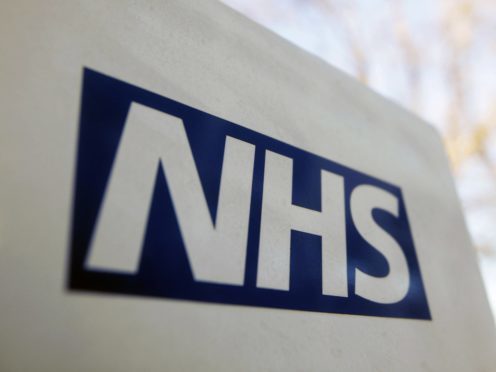A “new generation” cancer therapy has been rejected for widespread NHS use by health officials.
The National Institute for Health and Care Excellence (Nice) published draft guidance stating that axicabtagene ciloleucel, also known as Yescarta, is not recommended for NHS use for patients with aggressive sub-types of non-Hodgkin lymphoma.
The treatment, created by Kite Pharma – a subsidiary of Gilead Sciences – is a personalised cell therapy which re-engineers a patient’s own immune cells to fight cancer.
The Institute of Cancer Research, London (ICR), and the blood cancer research charity Bloodwise said the news was “disappointing” for patients.
NICE has made an early recommendation that a CAR-T therapy treatment should not be available on the NHS for lymphoma patients, saying that there are still questions over its effectiveness and cost.We hope that these issues can be addressed.Our response:https://t.co/vr8WBHEgm2
— Bloodwise (@bloodwise_uk) August 28, 2018
The ICR said the treatment was a “major advance in cancer treatment” which has cured some patients who would otherwise have died.
The treatment is the first of a new line of chimeric antigen receptor T-Cell (CAR-T) therapies which are specifically manufactured for each individual patient.
It involves taking some of the patient’s own white blood cells which are then re-engineered in a laboratory so they can recognise and attack cancer cells before being infused back into the patient.
The treatment is for patients with aggressive forms of non-Hodgkin lymphoma, including relapsed or refractory diffuse large B-Cell lymphoma and primary mediastinal large B-cell lymphoma, after they have already had two or more different types of treatment.
Bloodwise said that these patients currently have a very poor chance of survival when treated with intensive chemotherapy – current standard treatment in the UK.
Kite Pharma said that in clinical trials, 72% of the patients responded to therapy and 51% went into complete remission.
But Nice said that there is no direct data to compare it with the current standard treatment of salvage chemotherapy.
It said that cost of axicabtagene ciloleucel was also too high for it to be considered a cost-effective use of NHS resources.
The health body also considered whether the treatment should be made available to patients through the Cancer Drugs Fund, but concluded that the therapy would not be cost-effective under the scheme.
Meindert Boysen, director of the centre for health technology evaluation at Nice, said: “CAR-T is an exciting innovation in very difficult-to-treat cancers, with a promise of cure for some patients.
NEWS: ICR responds to @NICEcomms decision about CAR T immunotherapy for non-Hodgkin lymphoma https://t.co/5DuqXb8Lae pic.twitter.com/70n9jezgFN
— The ICR (@ICR_London) August 28, 2018
“We have been working with the companies involved, and with NHS England, with the aim of ensuring that patients in England are among the first to have access to these new treatments in Europe.
“Although promising, there is still much more we need to know about CAR-T, and unfortunately, in this case, we are not able to recommend axicabtagene ciloleucel for use in the NHS in England at the cost per patient set by Kite Pharma.”
Hilary Hutton-Squire, general manager, Gilead Sciences UK and Ireland, said: “Yescarta is at the forefront of a new generation of innovative cell therapy that is bringing hope to patients who, in many cases, have run out of treatment options and literally have months to live.
“Our priority is to make axicabtagene ciloleucel available to patients in the UK as soon as possible, and as such we believe we will soon be able to reach an agreement.”
Commenting on the news, Professor Raj Chopra, head of cancer therapeutics at the ICR, said: “It’s disappointing that patients with non-Hodgkin lymphoma who have exhausted all other treatment options will not be able to access CAR T cell therapy – a brand new type of treatment for blood cancers.
“CAR-T cell therapy uses a patient’s own genetically modified immune cells to target their cancer.
“The technique is complex and expensive, but it is also a major advance in cancer treatment that has cured some patients who would otherwise have died.”
Dr Alasdair Rankin, director of research and patient experience at Bloodwise, added: “It’s extremely disappointing that people with advanced and highly aggressive blood cancers might not be able to access this breakthrough treatment that offers the genuine chance of a cure.
“CAR-T therapies are an entirely new type of treatment and are expensive, so it understandable that there will be a number of uncertainties and questions that need to be answered.
“We hope that over the coming weeks the NHS and the pharmaceutical company can work to address these issues and agree on a price so that patients can benefit.”
More than 4,800 people are diagnosed with Diffuse large B-cell lymphoma or Primary mediastinal B-cell lymphoma each year in the UK.
